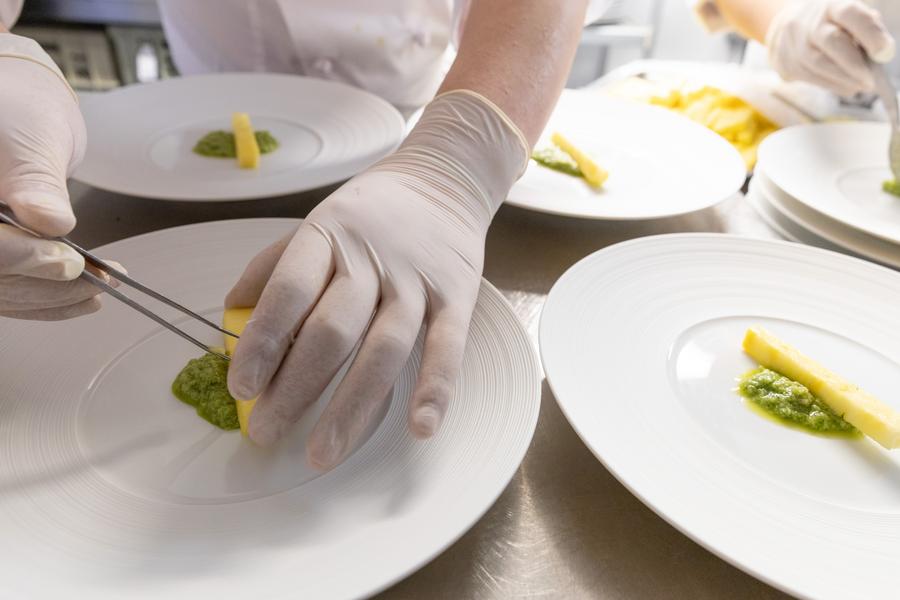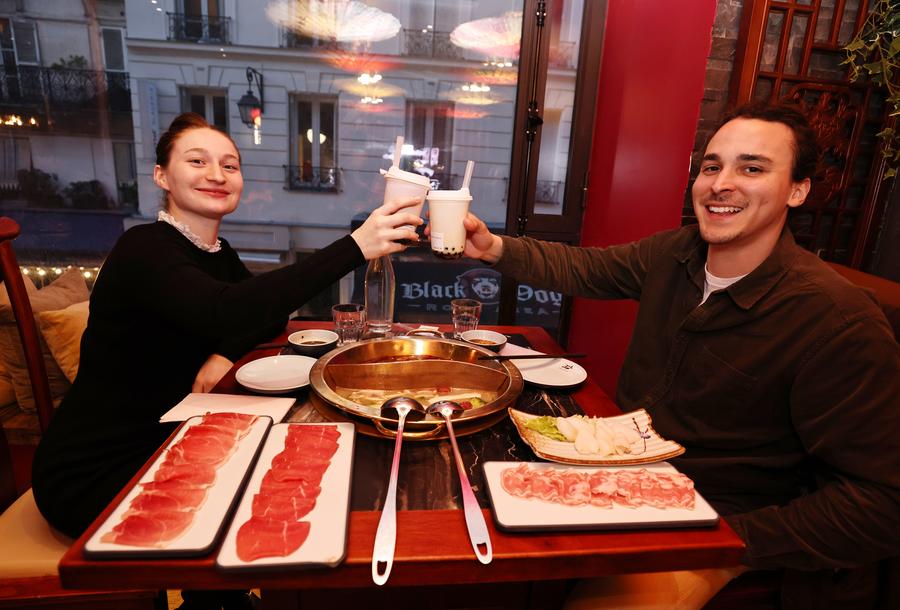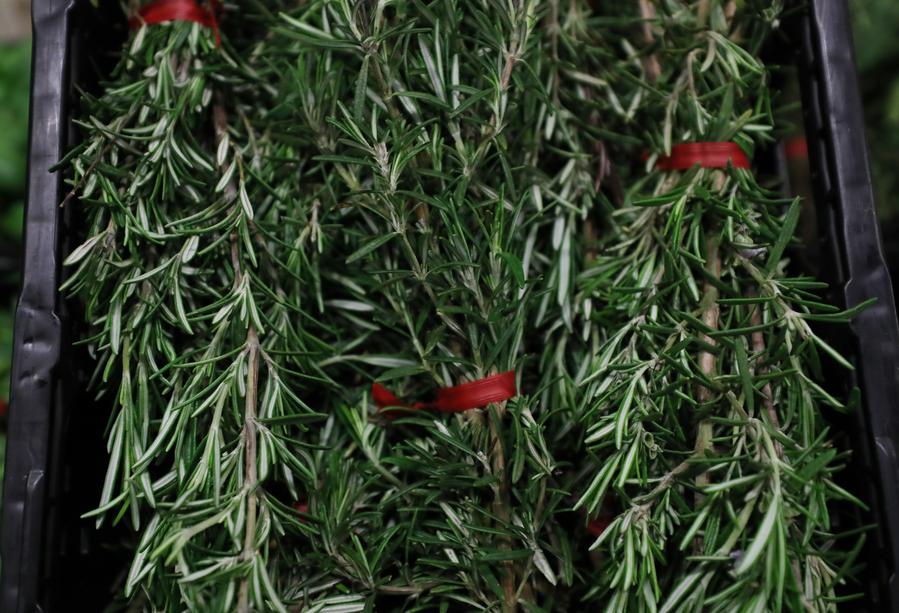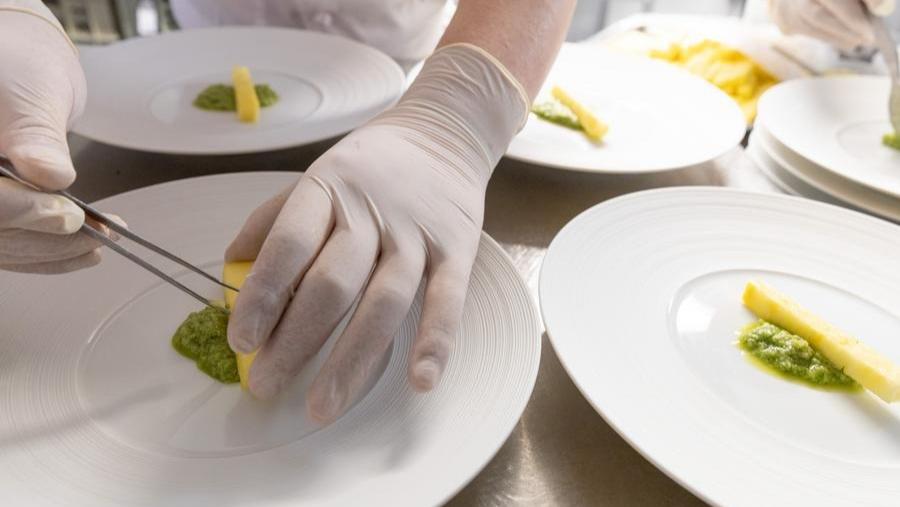
Thanks to integrated logistics and simplified customs procedures, French ingredients can now travel more smoothly and swiftly from "French farm to Chinese dining table."
BEIJING, May 7 (Xinhua) -- China and France, two countries with rich gastronomic histories at the two ends of the Eurasian continent, find their bonds via food have grown even stronger.
Thanks to integrated logistics and simplified customs procedures, French ingredients can now travel more smoothly and swiftly from "French farm to Chinese dining table."
FARM TO FORK IN 36 HOURS
In the southern Chinese culinary haven of Guangzhou, a city enamored by freshly sourced ingredients, fresh seafood from the Atlantic can now easily reach local dining tables.
Jacques Cocollos, an oyster farmer from the French province of Charente-Maritime, a major oyster production region, said it takes less than 36 hours for freshly fished oysters to arrive in China.
"Almost as fast as sending oysters to Nice," he said.
Cocollos is among the French aquaculture producers who are benefiting from the "French farm to Chinese dining table" whole-chain rapid coordination mechanism, jointly promoted by the leaders of both countries.
For Cocollos and his colleagues, China is one of the largest and most appealing global markets.
Huitres Lambert, a French oyster exporter from Charente-Maritime, said in an interview with French television that the company's exports to China have more than quadrupled between 2016 and 2023.
Laurent Bonduelle, vice president of SAS HYS, a seafood supplier in France's northwestern region Brittany, said their specialties find a strong demand and enormous potential in the Chinese market.
Upon recommendation from the Paris branch of the Industrial and Commercial Bank of China, SAS HYS also participated in the China International Import Expo (CIIE) in Shanghai.
GOUT DE FRANCE
Maxim's de Paris, an authentic French restaurant, is located on Five Great Avenues, Wu Da Dao in Chinese, in the coastal city of Tianjin in northern China.
Alain Le Meur, the French head chef of the restaurant, said many Chinese are attracted to French cuisine and come to enjoy its renowned dishes.

With increasingly convenient trade between China and France, the chef is now able to obtain ingredients necessary for "that authentic taste of France."
In a supermarket in Nankai District, Tianjin, a vast variety of French food products are now available.
"My children love French cheeses, and we are also fond of French red wine. There are now many import channels, and according to our needs, we can buy French red wine at different prices," said Liu Yang, a local resident.
Fanye Meng, China representative of INAPORC, France's national pig industry association, said China is currently the largest export market for French pork outside the European Union.
Maxence Bigard, president of the foreign trade commission of INTERBEV, France's national livestock and meat industry association, said that the Chinese market is full of potential as China is committed to developing the "French farm to Chinese dining table" mechanism, which brings more high-quality French meat products to the Chinese market.
WIN-WIN PARTNERSHIP
Over the past few years, agri-food trade between China and France has continued to expand. According to China Customs statistics, France is the largest exporter of agricultural products from the European Union to China and the second largest trading partner in this field.
By mid-2023, over 200 types of French agricultural products have been authorized to enter China, and nearly 7,000 French agricultural enterprises are registered in China.
In April 2023, through joint promotion by the leaders of both countries, France and China created the "French farm to Chinese dining table" mechanism, thereby accelerating the entry of French agricultural products into Chinese households.

In November of the same year, over 40 French agricultural companies participated in the sixth CIIE in Shanghai to present their products to Chinese clients. Freshippo, Alibaba Group's proprietary retail chain for groceries and fresh goods, for example, signed agreements with seven French companies on site to import agricultural products worth 3 billion yuan (420 million U.S. dollars) over the next three years.
In addition to trade, France and China continue to expand their agricultural cooperation in agri-technology, rural policy best practices, and joint training initiatives with efforts underway to bolster interpersonal, institutional and business ties.




 A single purchase
A single purchase









